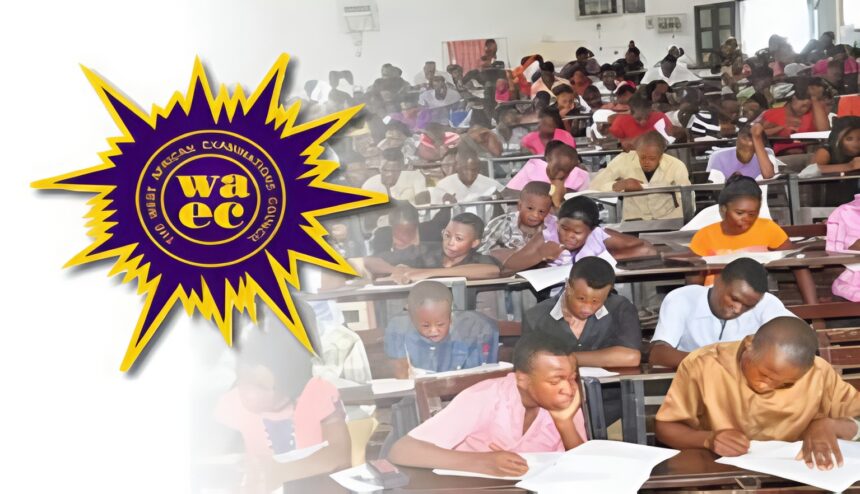Public outrage has continued to follow the recent release of the 2025 WASSCE results.
Parents, teachers, and advocacy groups have begun to demand the cancellation of the exams due to the mass failure in the 2025 WASSCE.
Pan-Atlantic Kompass reports that the West African Examinations Council (WAEC) on Monday reported that only 38.32% of the 1,969,313 candidates achieved credits in five subjects, including English Language and Mathematics.
The examination body said the 2025 WASSCE result is a sharp decline from the 72.12% pass rate in 2024, marking the worst performance in a decade.
Following the mass failure, many stakeholders pointed to systemic issues in the education sector.
Parents and groups have cited irregularities during the examination process, particularly exams conducted late at night on May 28, 2025.
Candidates reportedly used torches and candles due to power outages.
The Concerned Parents and Educators Network, CPE, called for the cancellation of the English Language paper and an inquest into why some candidates wrote the paper at night.
In a statement, CPE said: “Almighty WAEC has done it again. The pregnancy of a few months ago has finally been birthed. Mass failure in Mathematics and English. 450-word essays written with phone torchlight at 10:30 pm under the rain, with candidates swatting mosquitoes. How did we arrive here?.
“Our systems need drastic, strategic, urgent reforms.
“Which way is the way forward? If WAEC is not working and has lost relevance, can we have something else? A better mechanism that will address our context as a country?”
However, the National President of the National Parent Teacher Association of Nigeria, NAPTAN, Alhaji Haruna Danjuma, in his reaction, said the mass failure was due to efforts taken by WAEC to prevent cheating, especially in objective question papers.
Danjuma said: “One may say the level of examination malpractice has gone down. But that is just one of the factors. Do we have the teachers who can deliver what is needed in the required number? Many states have refused to engage new teachers to fill vacancies. Also, some parents cannot afford to buy the necessary textbooks for the wards and children. The prices have gone out of reach.
“We also need to equip our schools properly. Teachers’ welfare is also critical. When a teacher is thinking of what to eat and how to meet basic needs, how can he give the best to the students? Parents also have to take more interest in the education of their children.”





